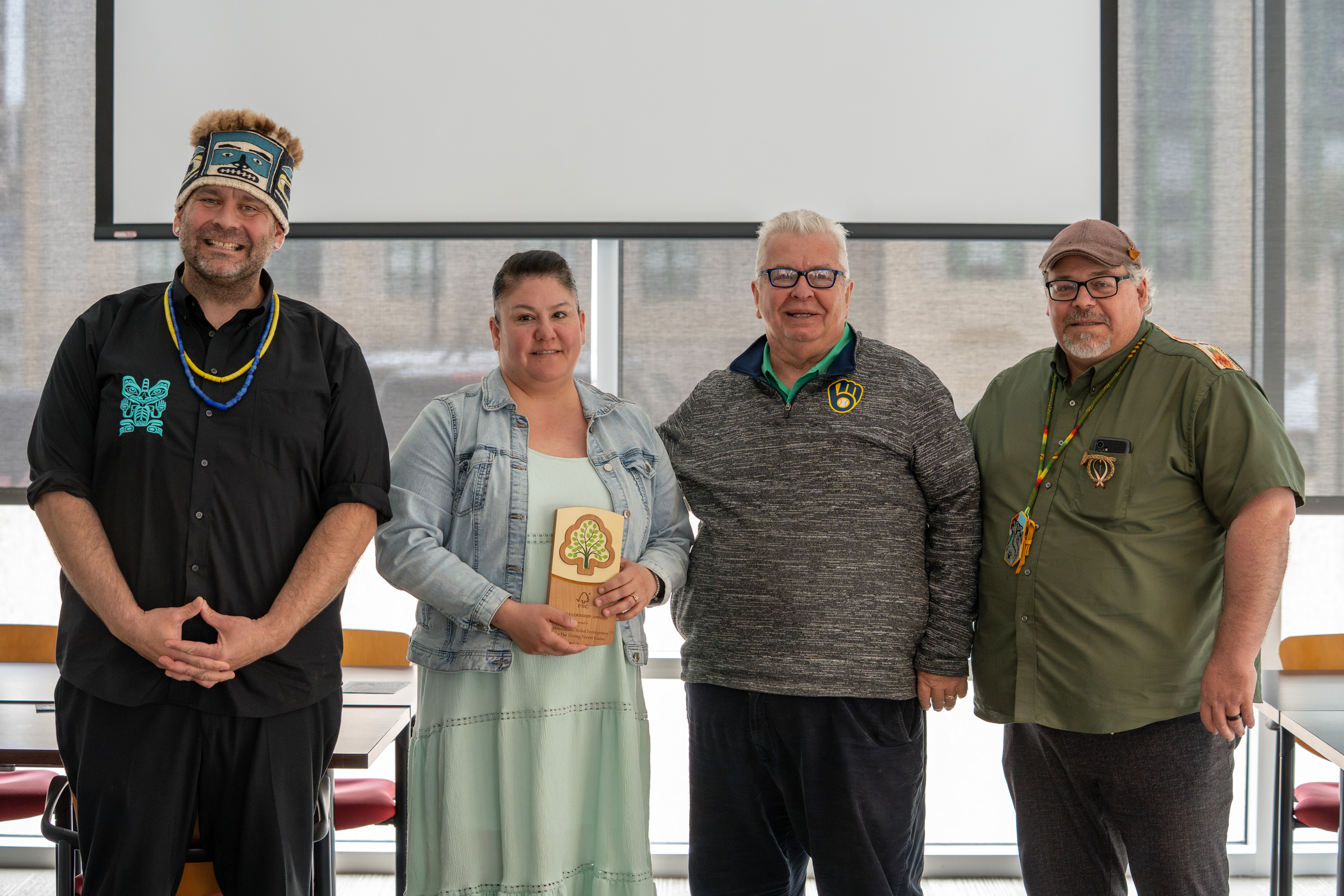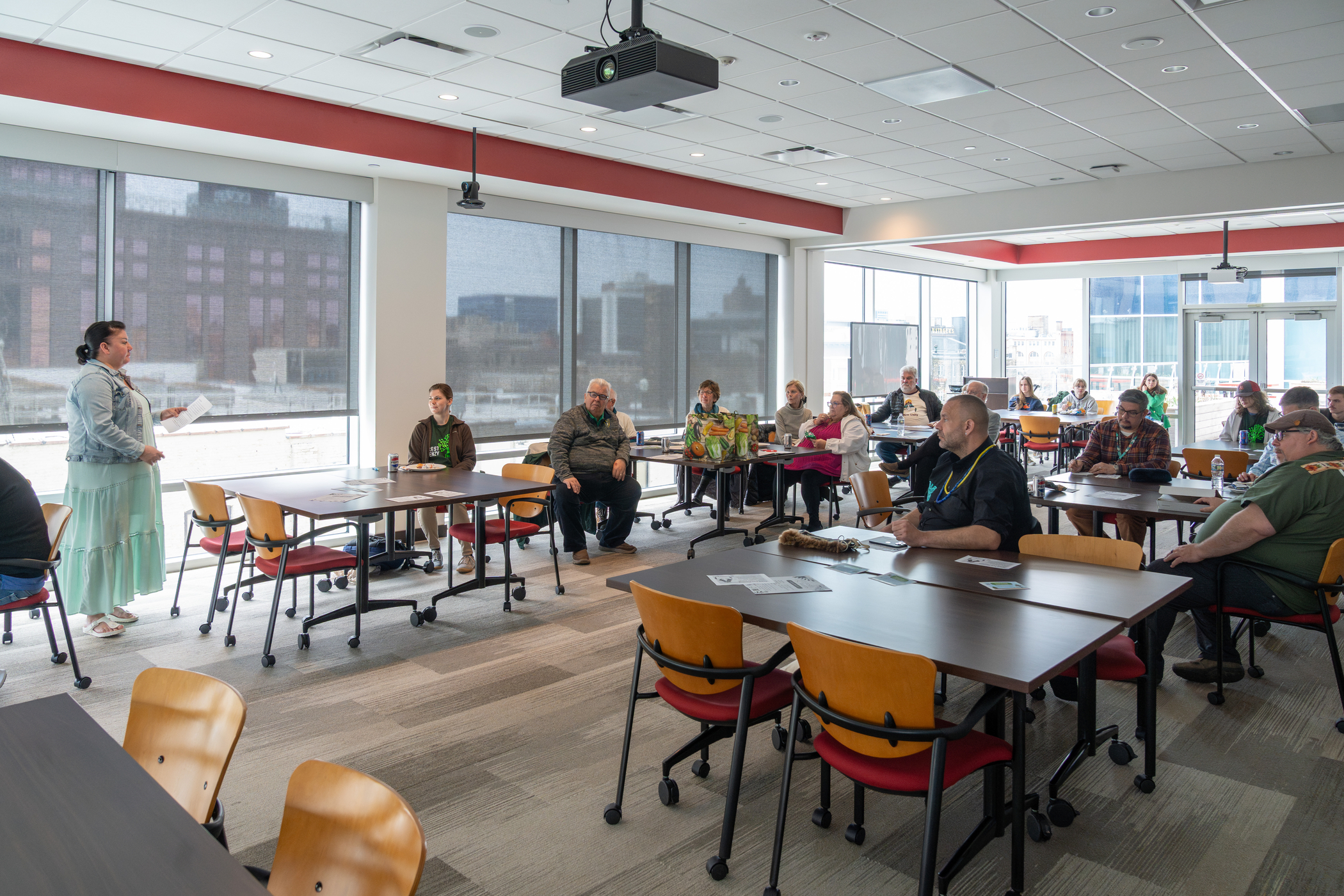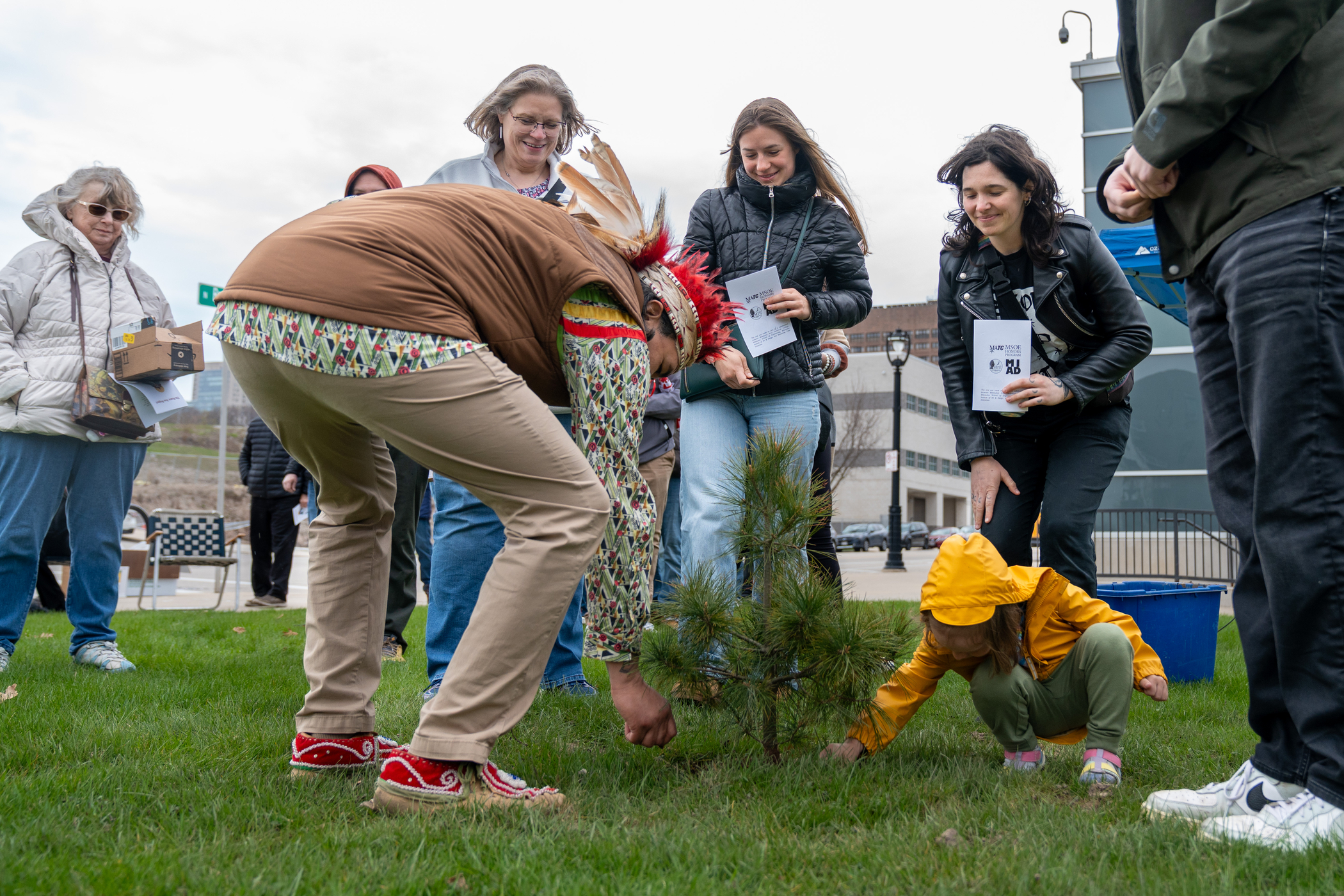By: Satnam Manhas, Indigenous Capacity Support (Canada/US) for the FSC Indigenous Foundation
In late April 2025, as part of Earth Week celebrations in Milwaukee, Wisconsin, three Indigenous leaders from Canada traveled to participate in a milestone moment for Indigenous-led forest stewardship and education. Satnam Manhas, Indigenous Capacity Support (Canada/US) for the FSC Indigenous Foundation, David Flood, FSC Permanent Indigenous Peoples Committee North America Representative and Ojibway from Ontario, and Tyler Bellis, Council of the Haida Nation representative from the Northwest Coast of Canada, joined community members to recognize a groundbreaking collaboration. The Menominee Tribal Enterprises (MTE) and the Milwaukee School of Engineering (MSOE) were jointly awarded the 2024 FSC Leadership Award for the development of The Giving Forest Game—a digital learning tool inspired by Menominee forest values and practices.
The Menominee Forest, spanning 230,000 acres (100,000 hectares), is among the oldest FSC-certified forests in the United States. Throughout the visit, MTE staff proudly shared that their forest was the second FSC-certified in the country—yet curiosity lingered about who was first from everyone. That honor belongs to the Collins Almanor Forest in Northern California, certified just a few weeks earlier.
The visiting delegation toured MTE’s forest and operations, hosted by Marketing Specialist Nels B. Huse, and met with key leaders including CEO Jennifer Peters, Sawmill Manager John Awonohopay, and Forest Manager Ronald Waukau, Sr. As they travelled from Chicago to Menominee territory, the contrast was stark—the Menominee forest stood out as the first stretch of intact, biodiverse, and actively managed forest the delegation encountered.

Ecological Integrity Above All Else
The Menominee approach is rooted in the enduring vision of Chief Oshkosh, centering ecological integrity above all else: “what’s best for the forest, then the people, and lastly, profit.” Despite the forest’s capacity to yield double its current volume, MTE practices low-impact, selective harvesting of only 30,000 cubic meters per year.
"The wood industry is always starts with profitability first, then they worry about their people, and last is the forest. For us, it's got to be the forest first, then the people, and then profitability is on the bottom." Says Ronald Waukau, Sr., “We don’t use cookie-cutter prescriptions—we do what’s best for the forest,” reflecting on their unique approach. As one Menominee quote reminds them: “The forest is not something we own. It’s something we belong to.”
With 95% Indigenous employment, MTE integrates forest management, sawmilling, and marketing through a model of economic self-determination. Nels Huse’s direct outreach—bypassing intermediaries—has transformed MTE’s wood products into a values-driven brand. “We can almost tell you the stumps that your product comes from, and FSC helps you with documentation.”
This approach helped secure high-profile projects, including the Milwaukee Bucks’ championship floor, which was blessed by Menominee members. “The forest isn’t just an economic asset—it’s a living classroom and medicine cabinet,” said John Awonohopay. “Visitors say they can see 20 medicines just looking out the window.”

The Earth Week program concluded with a Peace Tree planting at MSOE, where participants placed symbolic arrowheads around a newly planted White Pine in a powerful gesture of reconciliation and partnership. MSOE students who co-developed The Giving Forest Game spoke about working with the Menominee community and their efforts to adapt the game for other regions and languages.
Reflecting on the visit, Tyler, whose Nation has just signed a historic agreement with Canada and the Province of British Columbia affirming “Title”—the ability to make their own laws in the coming years over their terrestrial, park, and adjacent marine territories—this visit was timely, offering a tangible example of Indigenous vision turned into action.
David Flood shared: “As a Treaty Indian from Treaty No. 9 territory, where residential schools operated into the late 1990s, I left Menominee territory inspired—thinking deeply about our ancestors who endured the worst of colonialism. My hope is to live the next 30 years in service to my homelands in an unbroken way, until I too become an ancestor.”
His words underscored a core theme of the visit: Indigenous Peoples across North America continue to lead by example—through knowledge, care, and intergenerational responsibility.


